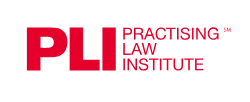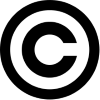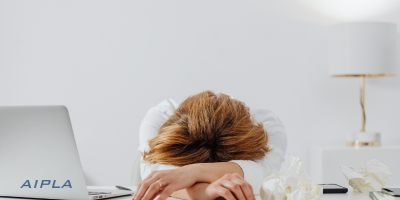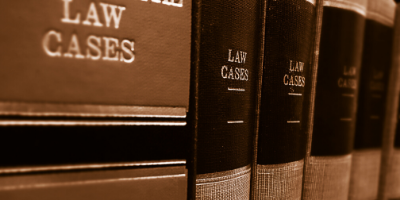Quarterly Journal Volume 52, Issue 3
In This Section
The Quarterly Journal is dedicated to presenting materials relating to intellectual property matters and is published four times per year. Editorial Board members (all of whom are lawyers) are selected based upon demonstrated interest and experience, and student staff members are selected from the students of the GWU Law School.
Thank you to our issue sponsor!

 QJ 52.3 - Auctorem Ex Machina: A Case For Human Copyright Authorship in Works Created Using Generative Artificial Intelligence
QJ 52.3 - Auctorem Ex Machina: A Case For Human Copyright Authorship in Works Created Using Generative Artificial Intelligence
Jake L. Bryant
Ours is an era of artificial relationships, an age where man is as connected to the machine as he is to other people. Recent developments in deep learning technology have posed a significant question to copyright jurisprudence: are works created using generative artificial intelligence (AI) the product of an author under copyright law? In this article, I examine the nature of generative AI models, the differences between large language models (LLMs) and large visual models (LVMs), and the history of authorship in U.S. copyright law before proposing a general test for authorship and qualifying prompt engineers as authors of certain works created using generative AI. The ultimate test for authorship must consider two factors derived from historical precedent. This test first asks whether the underlying work, in the event human authorship exists, meets the Feist standard of originality. The second factor considers the copyright claimant’s creative control over the conception, whether the work is a reasonable manifestation of the putative author’s intent. When a work is created using marginally supervised automated processes and contains subject matter not staged by the putative author, the determinative question is whether the copyright claimant’s creative inputs establish a limited universe of foreseeable results. In the case of visual works created with generative AI, courts can look to (1) the level of specificity and detail in the prompt text; (2) whether any additional parameters are used; (3) any use of job seeding to control the starting point of the image diffusion process; (4) the use of variation or regional variation buttons in creating the final image; (5) and the similarity of the final image to the prompt description as creative inputs to be considered in determining authorial control. Not every image created using generative AI will pass muster. If the prompt used is so abstract and lacking in additional parameters such that it amounts to little more than an idea, then demonstrating that the putative author’s intent was to generate an image substantially encapsulating the elements of the final chosen work is near impossible. However, many works generated according to highly specific, detailed prompts merit copyright protection.
 QJ 52.3 - Solutions to the Problem of Therapeutic Antibody Genus Claims
QJ 52.3 - Solutions to the Problem of Therapeutic Antibody Genus Claims
Jorge Goldstein PhD, JD
Court interpretations of the enablement and written description requirements of 35 U.S.C. § 112(a) have led to the erosion of legal support for the patentability and survival of genus claims for therapeutic antibodies and their uses. Most recently, the Federal Circuit in Amgen v. Sanofi (2021) applied a trio of chemical molecule precedents, Wyeth v. Abbott (2013), Enzo Life Sciences v. Roche (2019), and Idenix v. Gilead (2019) to deny enablement of a genus of antibodies claimed in quasi-chemical format. In affirming the Amgen decision in 2023, the Supreme Court added a “common quality” requirement for enablement of such claims. Analysis of claim requirements shows that, in most instances when the Federal Circuit has evaluated a genus claim to an antibody per se having blocking or biological requirements or to a method of therapy using such antibody, the Court held that such claim lacked either full scope enablement or full scope written description. This Article evaluates and proposes several solutions for the difficult task of obtaining and defending antibody genus claims. When a new target is discovered –that is, the target is unknown– and a novel antibody is generated against it, it should be possible under Chiron v. Genentech (2004) to put forth a per se antibody genus claim with no requirements other than a simple binding definition. Even if the target is known and the invention is that blocking such target leads to a heretofore unbeknownst method of therapy then, following the format in Hopkins v. CellPro (1998), an antibody genus can be claimed in per se form by a binding definition plus a competitive binding requirement relative to a specifically identified reference antibody. Such a claim is akin to an immunoassay claim, which under In re Wands (1988) and Hopkins, is more readily enabled and described than a claim with blocking or biological requirements. This is particularly the case when using today’s state of the art high-throughput screening immunoassays enhanced by AI. Other promising formats, such as means plus function claims are also evaluated.
 QJ 52.3 - Infringement Notice on Related Corporations: A Requirement of Patent Law Caught in the Jaws of State Law
QJ 52.3 - Infringement Notice on Related Corporations: A Requirement of Patent Law Caught in the Jaws of State Law
Immanuel J. Elijah
Patent law has been universally treated as a body of law exclusively under the federal scheme. Yet there are situations in patent law where state law will breach this federal exclusivity. One such breach occurs when a party seeks presuit damages from a corporation in a parent-subsidiary relationship with another. If a patentee wants to pursue such damages against these related corporations, corporate law regulates whether presuit notice will impute knowledge and liability onto the related corporation. In this way, corporate law controls who the patentee may receive damages from. This Note addresses how involving state corporate law risks creating inconsistencies in federal patent law, contradictory to preemption standards, by dispositively impacting how presuit notice imputes knowledge and liability on related corporations. To resolve these issues, this Note proposes an interpretive approach using preemption standards, considering constitutional and congressional interests in exclusive federal control over patent law, the patent-specific nature of presuit notice, and the preexisting formulations of agency law. The Federal Circuit should set a universal standard.
 QJ 52.3 - Ghostwriters and State Legislatures: Copyright and Access to the Law
QJ 52.3 - Ghostwriters and State Legislatures: Copyright and Access to the Law
Shalom Samuels
Upcoming Events
-
 AIPLA CLE Webinar: Regulation, Risk & Resilience: The Nexus Between Professional Liability, Duty of Competence & Practitioner Well-Being
AIPLA CLE Webinar: Regulation, Risk & Resilience: The Nexus Between Professional Liability, Duty of Competence & Practitioner Well-Being
February 10, 2026 12:30 PM to 2:00 PM | Eligible for up to 90 Mins CLE
Mental health issues and substance use disorders can affect any practitioner, in any setting, and at any time. Left untreated, they can destroy careers and lives. This program will discuss where the legal profession currently stands in relation to the substantial challenges presented by untreated mental health issues and substance use disorders and examine the nexus between ethical competence under the USPTO Rules of Professional Conduct and practitioner well-being. This program will educate attendees on how to recognize the signs of an impaired attorney, how to approach the colleague and begin a conversation, and discuss the possible disciplinary and professional liability implications of an impaired practitioner’s conduct. In addition, the speakers will present best practices/effective risk management strategies, preventative measures, and proposed policy and well-being initiatives, that practitioners in any practice setting may implement to protect clients, themselves, and other firm members as well as save careers. -
.png?sfvrsn=fb5905da_1) 2026 IP Transactions Bootcamp
2026 IP Transactions Bootcamp
February 12, 2026
This in-person bootcamp is designed to provide practical insights and strategies for professionals working in intellectual property transactions. The day features a comprehensive agenda including: Panels and CLE Sessions: Learn about Working with Tech Transfer Offices, Strategies for successful collaborations between nonprofits and industry, and Protecting and monetizing an AI asset. Drafting and Negotiating Tips: Get practical advice on drafting and negotiating strategic collaboration and license agreements. Hands-on Workshop: Participate in a Mock licensing negotiation to put your skills to the test. Networking: Conclude the day with a dedicated Networking reception. -
.png?sfvrsn=48c235e_1) 2026 Patent Prosecution Bootcamp - Arlington, VA
2026 Patent Prosecution Bootcamp - Arlington, VA
March 4 to 6, 2026 | Up to 1235 minutes, including 60 Ethics minutes
The 2026 Patent Prosecution Bootcamp is a comprehensive, CLE-accredited seminar that includes instructional lecture-style sessions with practical tips on U.S. and international patent preparation and prosecution, as well as hands-on interactive workshops that will walk you through drafting claims and responding to office actions. -
 AIPLA CLE Webinar: Damages 2025 Year-in-Review: Lessons and Litigation Strategies
AIPLA CLE Webinar: Damages 2025 Year-in-Review: Lessons and Litigation Strategies
March 11, 2026 2:00 PM to 3:30 PM | Eligible for up to 90 Mins CLE
This year’s panel of experts will leverage decades of deep litigation experience in patent-related matters to provide webinar attendees with insight on recent cases from the perspectives of private practice litigators and testifying experts. In a conversational format, our panel will address issues of high importance from 2025’s most interesting patent damages cases. Among other topics, our panel will discuss recent developments regarding expert admissibility, reliance on prior license agreements, apportionment, and non-infringing alternatives. -
2026 Women in IP Global Networking Event
April 16, 2026
The annual Global Networking Event connects intellectual property practitioners from around the world for a day of networking, education, and creating meaningful connections. This year’s theme, Rooted in Real - Women in IP Redefining the Narrative, is an opportunity for the AIPLA Women in IP Law Committee to celebrate authentic experiences, foster genuine connections, and showcase the real stories of women shaping the field of intellectual property law.

